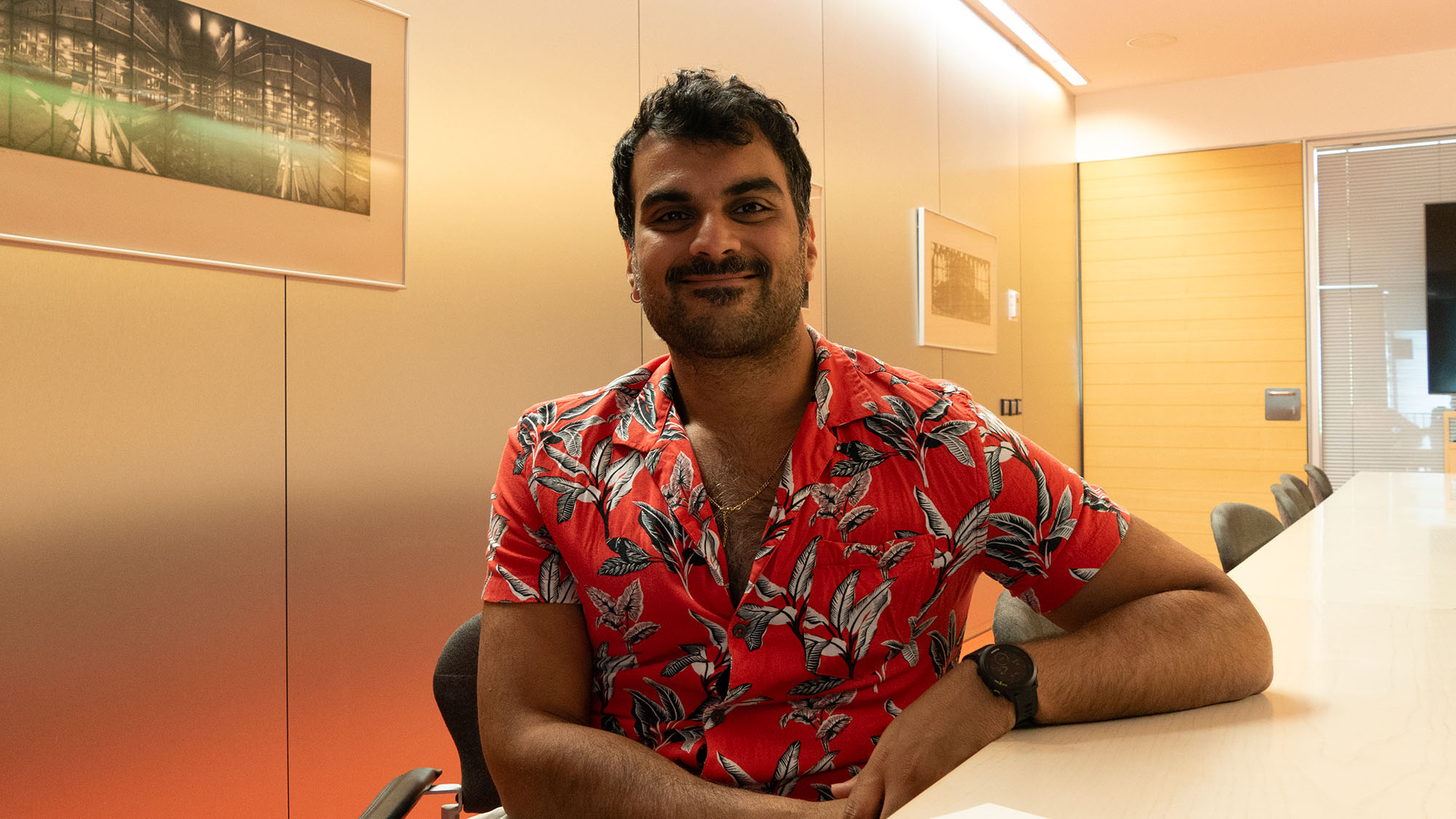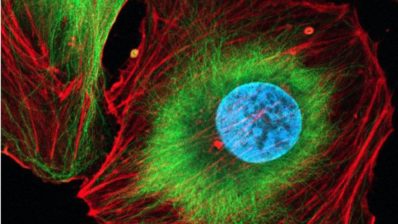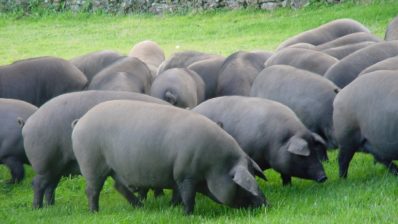Omar Jamshed works as the head of press at the Centre for Genomic Regulation (CRG) at the Barcelona Biomedical Research Park (PRBB). He studied Biology and specialized in scientific communication in the UK, before returning to the neighborhood where he grew up and where the PRBB is located: Barceloneta.
Omar explains to us what the job of a press officer entails. We talk to him about the challenges in communication, his strategic role, and the path that led him to this profession that he finds fascinating.
“It is a job that challenges you intellectually every day, that fuels your curiosity; I think this is a privilege. Also, you have access to the smartest people in the world, people who are exploring unknown frontiers, and you are part of that exploration team.”
What does your job consist of?
It involves promoting the science carried out at the CRG, mainly by writing press releases about new studies published in scientific journals. I turn about 20 pages of scientific content into a 500-600 word press release with simpler language. I do it in English, because we are an international center, but I also write in Spanish and Catalan.
The other part of the job is promoting the center’s institutional projects. We need to explain the new projects of the CRG or new collaborations with other research centers or with industry. Or other special projects, such as the celebration of our recent 20th anniversary.
In short, it’s about spreading the news on science, technologies, patents, and companies that emerge from the CRG. But all this must be done strategically to get the most media coverage and reach the public. That is why I work with journalists and try to write content that works for them.
What is your day-to-day like?
Before coming to work, I read the national and international press. I try to stay updated on the topics being debated in the public sphere and what other research centers are doing, to look for opportunities and think about how our center could contribute.
Then, at work, I have many meetings. I need to stay updated on the research that will be published to start working on the press releases two months in advance. In general, the science we do is very complicated and difficult to explain. The more time we have to prepare everything, the more impact we will have.
I spend a large part of the day writing and also staying in touch with journalists via WhatsApp. In addition to the press releases we send them, we also put them in touch with our researchers to comment on news from other centers as independent experts. Another very important daily task is to prepare the editorial calendar, in which we schedule when each news item will be released to avoid overlaps.
What has your educational and professional path been like?
I studied Biology at the University of Sheffield in the UK, and then a master’s in scientific communication. This type of master’s was not very common in the 2000s, but now it is common in many universities.
Then I worked at an endocrinology society in the UK, where I did various tasks and managed social media and the website. Afterwards I went to the Royal Society, which is the UK’s Royal Scientific Academy, and there I specialized in press for almost 3 years. My next job was at the CRG.
Do you think there are other paths to this profession?
Yes, I think there are other master’s programs that could be even more useful. The master’s in scientific communication teaches you the sensitivity of the scientific dissemination culture. But there are others, which may seem more unrelated to science, that can help you develop very useful skills for communication, such as a master’s in journalism or digital communication.
I would recommend a scientific degree and one of these master’s programs to learn about communication. This prepares you to work in a research center, but also for other career paths such as communication agencies or scientific-technological innovation companies.
To be a press officer at a research center, I would recommend a scientific degree and a master’s to learn about communication.
Omar Jamshed, Head of Press at CRG
There are also people who come from the world of journalism and have specialized in science journalism. And they do it very well because, since they are not experts in the scientific field, but in communication, they simplify the messages very well for the general public to understand.
Why did you choose this professional path?
The truth is that it was a bit by accident. I wanted a job where I could use my curiosity, and I think my personality helped me advance in this career, as I am good at talking to people.
There is also a personal story that ties me to the PRBB. My family is from Pakistan, and I grew up in Spain. The first place we lived in Barcelona was the Barceloneta neighborhood. My mother was a scientist and had to leave science. When I was little, they were building the PRBB in the neighborhood, and she told me that she would like me to work there. One day I found the job offer from CRG on LinkedIn and thought it would be very funny if I got it. And I did. My mother was very happy.
What do you like most about your job?
It’s a job that challenges you intellectually every day, that fuels your curiosity; I think this is a privilege. Also, you have access to the smartest people in the world, people who are exploring unknown frontiers, and you are part of that exploration team. You are exploring how to communicate those ideas, how to highlight them and make people think differently. You can influence at a national level with journalism, or start conversations at the international level.
The other day, a CRG researcher went to have a coffee, and the waiter told him he had read about his project in the press and congratulated him. When you hear this, you see the impact you are having, and it makes you happy.
I also like working in a public center, where the main goal is not enrichment from a purely capitalist point of view.
What are the challenges of your job?
A first challenge is that you have to constantly educate the scientists on the rules of the game. Professionals in the scientific field don’t necessarily understand how journalism policy works, what information is considered new or relevant.
Another is the fragmentation of communication channels. It is no longer enough to be just in the press, you also have to be on social media and in the different channels that emerge, and you have to grow in those communities. Creating content for the press is not the same as for TikTok or X. Doing it all requires a lot of work, and you don’t always have many resources. It’s a paradigm shift, and sometimes communication departments adapt more slowly than necessary.
What is the human team you work with like?
We are a team of four people. There is one person in charge of the department, one person for scientific dissemination who organizes face-to-face events, another person who handles events and social media, and I am in charge of the press. For a center of our size, it’s a good team, although given the level of excellence of the CRG and the amount of content it generates, I think we could benefit from having one more person on the team!
What skills or abilities do you think are most important for this type of work?
You need communication skills to explain things in a simple and concise way. Also, knowing how to deal with people and manage their expectations, because you will work with different actors, such as scientists and journalists who have different goals and visions.
Lastly, a strategic vision of communication is required. You need to know when something is newsworthy. Your job is not just to write press releases, but to design a strategy to disseminate them and move forward with goals.
What advice would you give to someone who wants to pursue this profession?
Be willing to step out of your comfort zone and go beyond training in scientific dissemination. If you learn about journalism or marketing, you will have skills that will allow you to work in a research center, but also in other possible career paths, such as in business or industry. Many marketing and social media management profiles are in demand.
“I believe that new content generation technologies will make us less creators and more editors”
How do you see your future?
I believe that new content generation technologies will make us less creators and more editors. These technologies are already being used quite a bit. Artificial intelligence can, for example, make a first draft that you then edit. We will no longer start with a blank page but we will have to edit and debate a lot. We will be able to do many more things, much faster, but we will always need someone to coordinate it.
I don’t think jobs will disappear, but I do think we will have to do much more diverse things and generate more content. What worries me is whether there will be content saturation and whether the content will have the same impact, whether the public will be there or will look for something more organic. That’s what I can’t predict.







